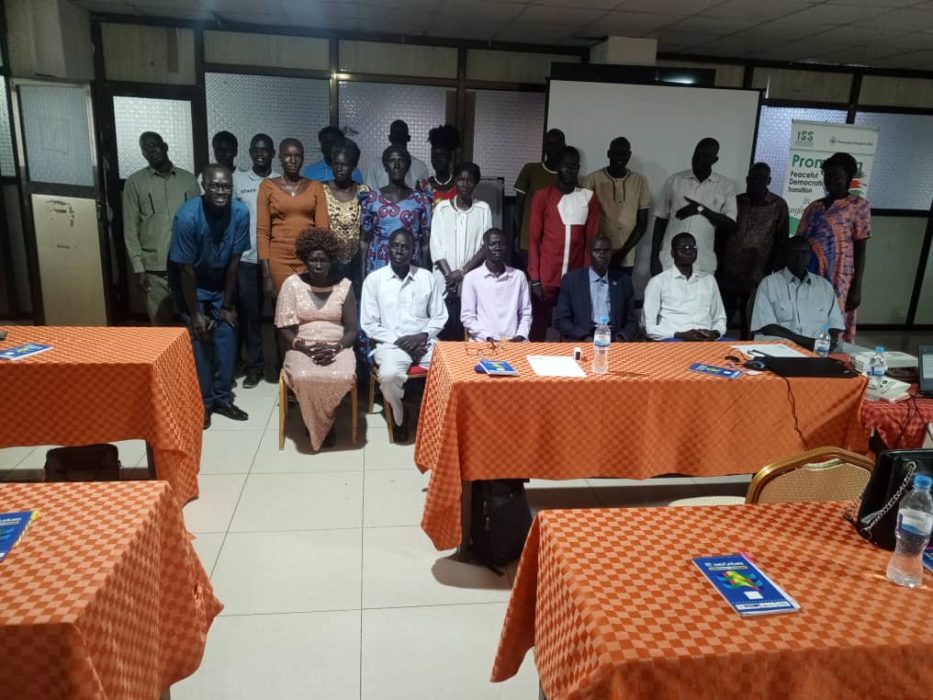
By Deng Ghai Deng
BOR, Jonglei State – A local civil society organization, INTREPID South Sudan, has concluded a two-day workshop on Alternative Conflict Resolution Mechanisms, culminating in the formation of 15 Peace Ambassadors aimed at promoting grassroots peacebuilding across Bor County.
The training, supported by the Norwegian People’s Aid (NPA) and held in Bor town, brought together participants from all five payams of the county—Makuach, Kolnyang, Anyidi, Baidit, and Jalle—including chiefs, youth and women leaders, government officials, and civil society actors.
Speaking at the close of the workshop, Bol Deng Bool, Executive Director of INTREPID South Sudan, emphasized the goal of empowering communities to manage and resolve conflict through nonviolent, inclusive approaches.
“The Peace Ambassadors program equips local leaders with the tools to monitor conflict trends, identify root causes, and recommend appropriate interventions,” said Bool. “Each payam is represented by a chief, a youth leader, and a women’s representative, ensuring inclusive participation.”
The initiative was praised by state authorities and legislators, including John Agany, Chairperson of the Peace Committee in the Jonglei State Legislative Assembly, who urged the ambassadors to take their roles seriously amid ongoing tensions in the state.
“In Jonglei State, people live in fear of conflict,” said Agany. “It’s our collective responsibility to bring peace, especially as we face threats such as the recent spiritual unrest in Makuach.”
Participants welcomed the initiative as a sustainable, community-driven model for conflict resolution and peacebuilding. Many expressed hope that similar programs would be implemented across other counties in Jonglei and beyond.
INTREPID South Sudan announced it will continue working with state institutions and local actors to support the Peace Ambassadors and expand the program to other conflict-affected regions in the future.
“We strongly believe that indigenous solutions can yield more sustainable outcomes in resolving local conflicts than external models,” a participant noted.
